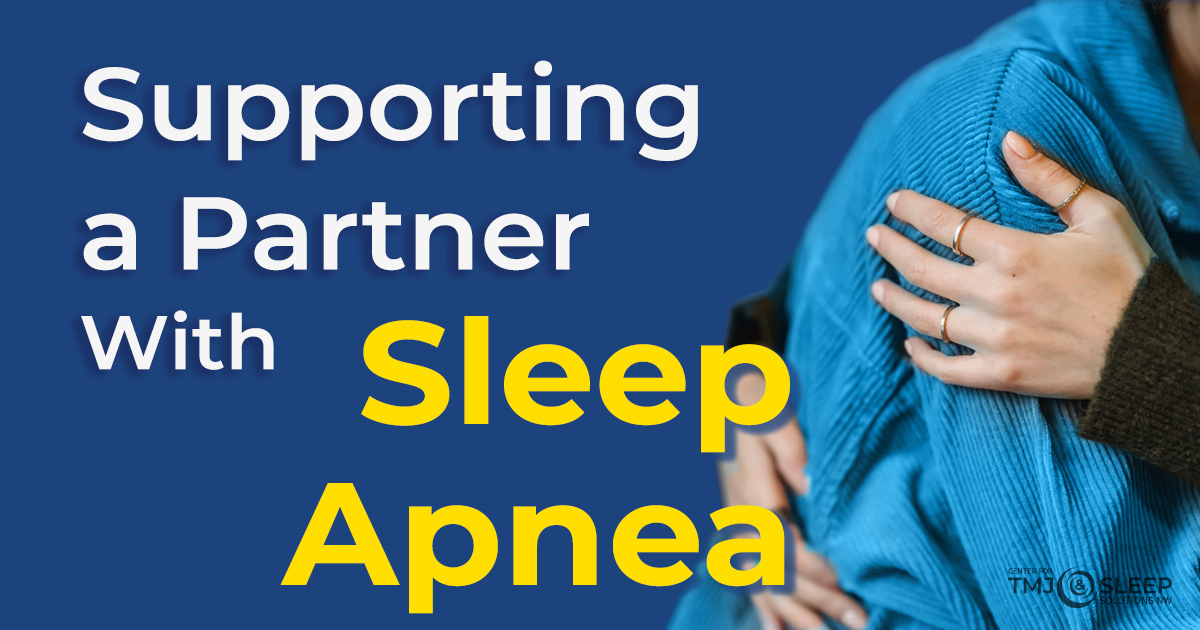
5 Ways To Support A Spouse Or Partner With Sleep Apnea
Sleep apnea affects nearly 40 million Americans, many of whom have spouses or partners. Living with sleep apnea can be challenging for the person who has it as well as the person who shares a bed with them. While treatment is the most important step in managing this serious condition, a supportive partner can also be immensely helpful.
Managing sleep apnea is easier with support from a partner or spouse. As they say, teamwork makes the dream work. In this case, that is a literal statement. If your bed partner has sleep apnea and you are actively involved in their treatment, they will be more likely to stick to it and achieve long-term success.
How to Be a Supportive Partner
- Learn about sleep apnea: If you don’t suffer from sleep apnea, you may not completely understand the struggle. Learning about it will increase your understanding and awareness and help you recognize symptoms, if your partner is still undiagnosed, or signs that prescribed treatment is not working as well as it should.
- Encourage treatment compliance: If your partner needs to be more consistent about using their oral appliance or CPAP, you can help them make it part of their routine with gentle, encouraging reminders. A positive and accepting attitude towards their treatment will help them feel more comfortable using it every night.
- Be a team: Sleep apnea treatment often involves lifestyle changes, such as dietary modifications, cutting back on alcohol, exercising more frequently, and reducing stress. You can make these changes with your partner to show your support. Bonus: You will also improve your own health and sleep.
- Make the bedroom a sleep sanctuary: Work with your partner to make your bedroom more conducive to quality sleep. For instance, you can decide together that the bedroom is a no-screens zone and both go to bed at the same time to prevent sleep disruptions.
- Talk to your partner: This is the most important way you can support your spouse or partner with sleep apnea. Open, honest communication about your needs and theirs will help you work through any challenges, especially as your partner starts their treatment plan. Often, there is an adjustment period, and your understanding will be appreciated during this time.
Sleep apnea is a challenging disorder for everyone involved. Showing support for your partner or spouse will help. If you suspect your spouse or partner may have sleep apnea because they snore loudly or wake up gasping for air at night, please contact the Center for TMJ & Sleep Solutions location nearest you, in Silverdale, Bellevue, Federal Way, or Lynwood, WA. We have resources and tools to help them get a diagnosis and receive effective treatment.










